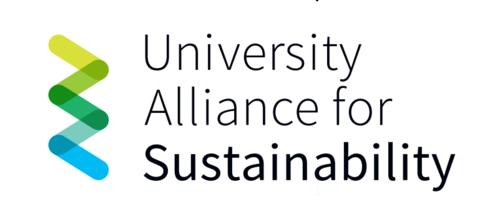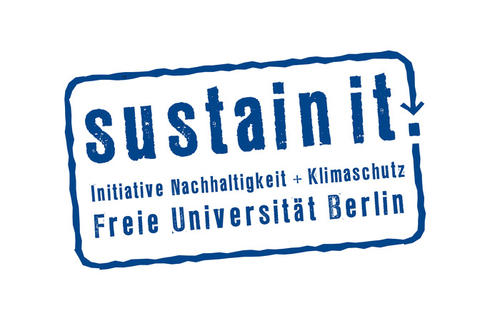All About Professional Mobility
Mobility facilitates conversations and encounters. The following tips enable the design of professional mobility in an environmentally friendly manner.
Cycling is time-saving, quiet, healthy, and highly eco-friendly:
-
Pedelecs or E-Bikes provide electric assistance, making biking to work feasible for also for longer distances.
-
Bicycle repairs can be challenging at times. To avoid long downtimes in case of a breakdown, the FUrad self-help workshop is available at Fabeckstr. 30. FU members can perform their repairs or learn how to do it.
Utilizing buses and trains is environmentally friendly and quick:
-
FU employees can purchase discounted subscription tickets with the Jobticket, providing affordable commuting even after work and on weekends without a car.
-
Combined with a bicycle, public transportation can be flexibly used based on weather conditions or personal preferences. The monthly bicycle pass is available in the VBB network starting at €11.50.
A drive with a combustion engine car consumes fossil energy, creates noise, emits greenhouse gases, and poses health risks due to exhaust emissions. If a car is necessary, negative impacts can be minimized:
-
Small, fuel-efficient vehicles consume significantly less fuel compared to larger ones.
-
Electric vehicles, when charged with green energy, are nearly emission-free and relatively energy-efficient. They can cover about 100 km with the energy equivalent of approximately 2 liters of gasoline (19.4 kWh).
-
Using car-sharing services reduces the number of cars and parking space requirements.
-
Carpooling is not always easy to implement. Tips and examples on facilitating carpool formation can be found here.
-
Everyone can do it: Bicycle, bus, train and car can be combined in such a way that the changeover is convenient and stress is reduced because traffic jams and the search for a parking space are avoided.
- Trips within the campus can be managed by bicycle or public transportation.
-
Digital or hybrid events result in significantly lower emissions compared to business travel.
-
Business trips to destinations within Europe can often be done by train, saving substantial climate-harming emissions compared to flying or driving. Night train connections can be a relaxed alternative for long journeys in Europe.
-
The upcoming FU business travel policy aims to reduce greenhouse gas emissions. Unavoidable flights should be offset, and regulations for this will be published in the coming months.
-
Every aircraft take-off and every stopover causes particularly high greenhouse gas emissions. Air travel should therefore be planned without changing planes wherever possible. The journey to the take-off airport, which may be further away, should be made by train if possible.
Did You Know?
-
About one-third of Freie Universität's CO2 emissions are caused by business trips.
-
Driving 10 kilometers to work by car results in an average of 472 kg of CO2 emissions per year. Using public transport or an E-Bike can significantly reduce personal CO2 emissions, contributing to climate protection. For a nearly 10 km work commute, the comparison values determined by the German Federal Environment Agency are as follows:
-
Car (gasoline): 472 kg CO2 per year
-
Bus (diesel): 225 kg CO2 per year*1
-
Bus (electric): 0 kg CO2 per year
-
E-Bike: 13 kg CO2 per year
-
U- and S-Bahn (subway and urban rail): 0 kg CO2 per year
-
Bicycle: 0 kg CO2 per year
*Sources: German Federal Environment Agency, VCD, Pendos CO2 counter (inner-city work commute of 9.6 km, 252 working days per year, 7.8 liters of gasoline consumption, direct emissions), BVG, and DB. The life cycle assessment (manufacturing, infrastructure) of the means of transport is not considered.
-
*1 According to BVG: Double-decker bus with a fuel consumption of 3.5 l diesel per 100 Pkm and 252 working days.




